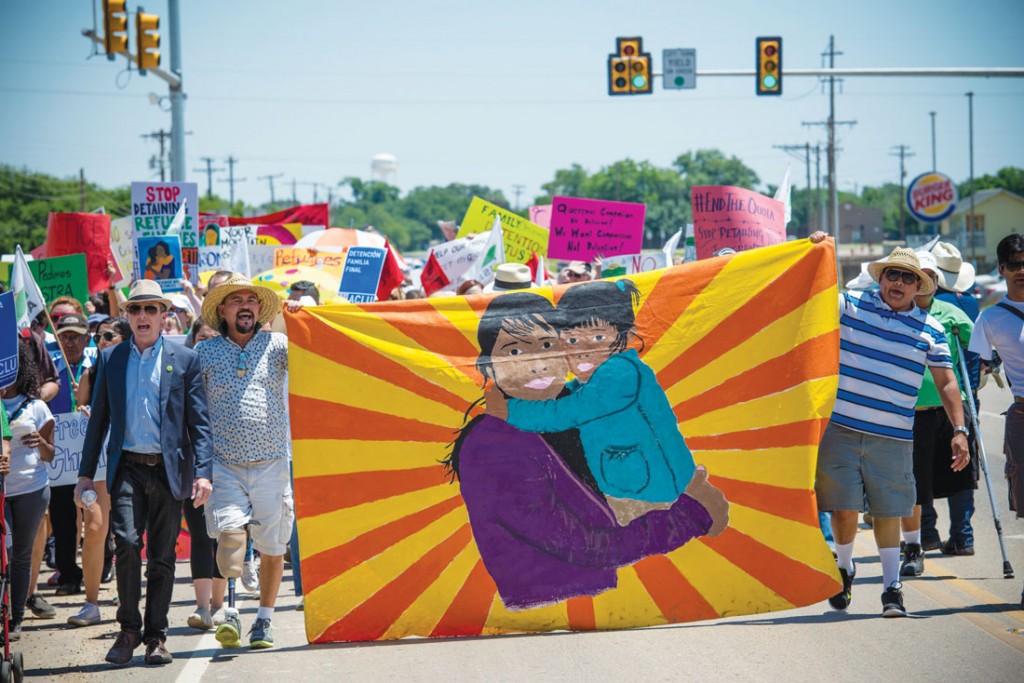Detention centers hold asylum seekers needlessly, as operators rake in millions

by Peter Gorman, Fort Worth Weekly
In response to 2014's unprecedented number of women with their children caught crossing the border between Mexico and the United States—68,000 families—President Obama expanded on a program of family detention that had nearly been phased out in 2009. Family detention, where a woman is kept with her children until a deportation or asylum hearing can take place, had only 100 beds available daily in a small Berks, Pa., facility between 2009 and 2014. But with the opening of two new family detention centers in Texas and an expansion of the Berks facility, that number will reach about 3,700 in the next month and eventually balloon to 6,300.
The program was shut down when the American Civil Liberties Union and the University of Texas won a settlement in a federal lawsuit against Immigration and Customs Enforcement for deplorable conditions for children at the T. Don Hutto family detention facility, a former medium security prison in Taylor, Tex. Those conditions included locking families in cells for 12 hours daily, depriving children of outdoor recreation, and forcing them to wear orange jail jumpsuits.
Nearly all of the families currently in the detention centers, which are less restrictive than normal prisons, are seeking asylum. The vast majority of those who arrived in the 2014 wave came from El Salvador, Guatemala, and Honduras, countries that have seen a huge increase in violence in the past few years, largely due to Mexican drug cartels moving into those countries.
Recent Updates
5 hours 17 min ago
5 hours 56 min ago
10 hours 10 min ago
10 hours 40 min ago
1 day 3 hours ago
1 day 3 hours ago
2 days 12 hours ago
3 days 3 hours ago
3 days 4 hours ago
3 days 4 hours ago